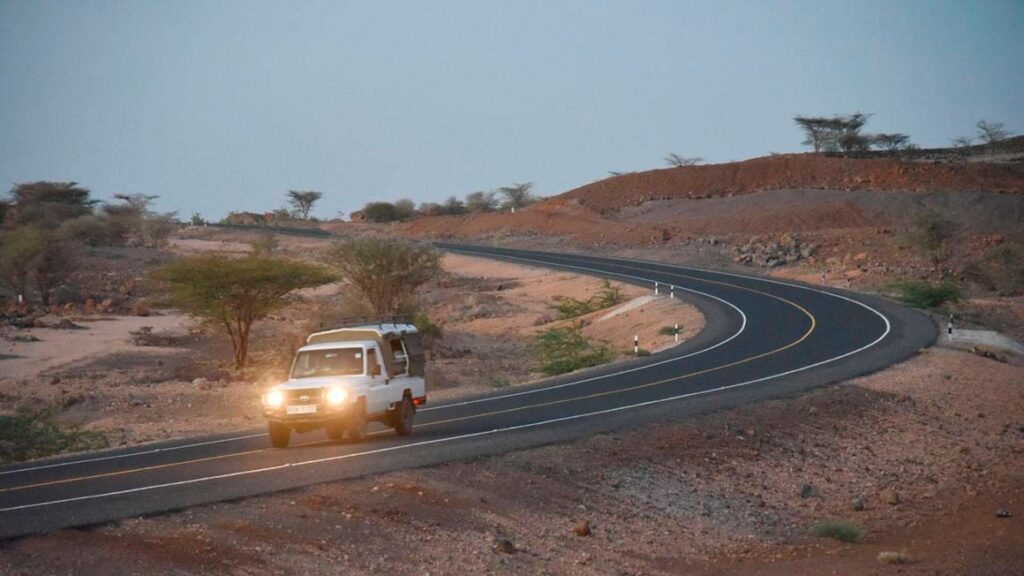Ethiopia, South Sudan to Build 220km Cross-Border Road; Uganda Reinstates Tax on Electric Vehicles
Ethiopia and South Sudan have embarked on a significant infrastructure initiative with plans to construct a 220-km cross-border road, following a substantial $738-million financial agreement inked in May 2023. This landmark deal, ratified by South Sudan’s Transitional National Legislative Assembly on Tuesday, marks a pivotal step in bolstering connectivity and economic ties between the two neighboring nations, as outlined by the Ethiopian Ministry of Foreign Affairs in a recent statement.

The project aims to enhance regional integration and facilitate smoother trade routes, symbolizing a deepening of cooperation and mutual benefits between Ethiopia and South Sudan. Under the terms of the agreement, Ethiopia will finance the entire cost of the road project, underscoring its commitment to regional development initiatives.
The arrangement designates South Sudan as the borrowing entity and Ethiopia as the financier, with repayment structured around crude oil exports from South Sudan to Ethiopia. This initiative not only promises to transform transportation infrastructure but also signifies a strategic investment in fostering economic growth and stability across the region.
Uganda Reinstates Tax on Electric Vehicles (e-Vehicles)

Uganda has recently reintroduced a 25 percent import duty on fully electric vehicles, hybrid vehicles, and electric motorcycles, citing the need for industrial development, import substitution, and sector-specific protection. Moses Kaggwa, director, explained that this decision was made during the review of the East African Community (EAC) Common External Tariff in May 2024, despite the EAC’s intended implementation of the new CET 2022 structure without alterations.
The move comes as Uganda aims to shift from traditional gasoline-powered vehicles to zero-emission electric cars, with Kiira Motors Corporation playing a pivotal role. The government-backed company is ramping up production of electric buses for both domestic urban transportation and export markets. Finance Minister Matia Kasaija highlighted orders from Tanzania, South Africa, Nigeria, and Eswatini for electric and low-emission diesel combustion buses.
Kiira Motors has been at the forefront of Uganda’s automotive innovation, developing Africa’s first hybrid vehicle in 2014 (the Kiira EVS) and Africa’s first solar electric bus in 2016 (the Kayoola Solar Bus). To date, Uganda has manufactured 39 buses, including 27 electric and 12 low-emission diesel vehicles. Significant investments in infrastructure in Jinja are underway to support the planned annual production of 2,500 buses starting October 2024 at the Kiira Vehicle Plant (KVP).
Despite these advancements, Uganda has scaled down subsidies for electric small cars by imposing a 25 percent import duty, significantly increasing their cost. This policy shift has already impacted sales, with predictions of a decline despite previous growth in electric vehicle imports when duties were waived.
Car dealers have expressed concerns over the unpredictable tax regime, warning that it may deter future investments and hinder efforts to promote electric vehicle adoption in the country. They emphasize the challenges of simultaneously encouraging market participation, raising awareness, and building necessary infrastructure under such uncertain conditions.
The reintroduction of import duties on electric vehicles marks a strategic move by Uganda to balance economic growth with environmental sustainability. Advocates argue that while higher duties may initially slow adoption, they are essential for fostering local industry and reducing dependency on fossil fuels. Critics, however, fear that these measures could stifle innovation and increase costs for consumers and businesses alike, making it harder to achieve widespread adoption of clean transportation technologies.
In response to these concerns, government officials have underscored their commitment to supporting the domestic electric vehicle sector through targeted investments and policy incentives. They point to ongoing initiatives aimed at expanding charging infrastructure, promoting research and development, and partnering with international stakeholders to bolster Uganda’s position in the global electric vehicle market.
Looking ahead, stakeholders across Uganda’s automotive industry are closely monitoring the impacts of these policy changes on market dynamics and consumer behavior. The success of Uganda’s transition to electric vehicles will likely hinge on its ability to strike a delicate balance between regulatory certainty, economic competitiveness, and environmental stewardship in the years to come.
Read More MULTICHOICE FACES $225M LOSS AMID PLANS FOR AFRICA’S BUSINESS GROWTH


